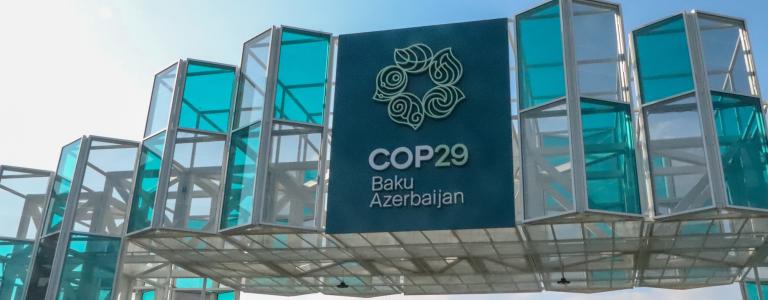COP 29 | Halfway Point Webinar
Halfway through UN climate change talks in Azerbaijan, the Earth Negotiations Bulletin team reviewed the latest developments, took questions, and helped you prep for the final week of COP 29.
After a year of record-breaking temperatures, national leaders and negotiators will meet in Baku, Azerbaijan for UNFCCC COP 29. With expectations high for a meaningful new collective quantified goal (NCQG) to finance climate action for years to come—as well as pressure to build on last year's global stocktake decision and advance ambitious greenhouse gas mitigation—delegates will be hard pressed to prove they can quickly change the trajectory of global warming trends.
Earth Negotiations Bulletin climate negotiations expert Jennifer Allan discusses
- which negotiating items progressed in the first week
- where the greatest obstacles have arisen—and why
- what we can expect from Week Two of the talks
Following a summary of the first week of negotiations, participants in the COP 29 Halfway Point Webinar posed questions to the team behind the world's most authoritative record of climate negotiations. Subscribe to the Earth Negotiations Bulletin newsletter to get daily updates from Baku.
